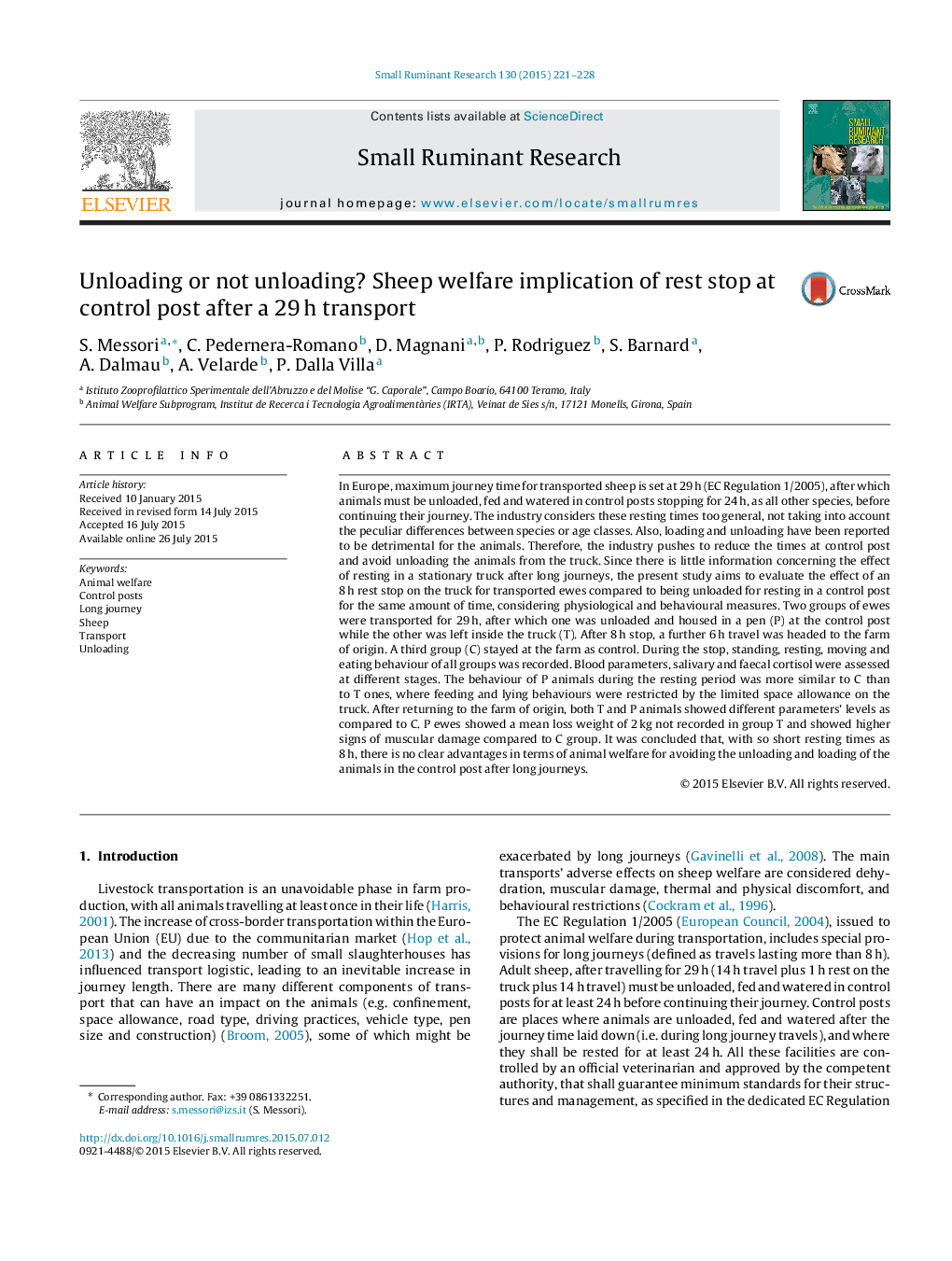| کد مقاله | کد نشریه | سال انتشار | مقاله انگلیسی | نسخه تمام متن |
|---|---|---|---|---|
| 2456868 | 1554362 | 2015 | 8 صفحه PDF | دانلود رایگان |
• After 29 h journey ewes must be unloaded to rest in a pen before completing a travel.
• Loading/unloading procedures after travel may compromise animal welfare.
• We assessed welfare implications comparing rest on truck vs. unloading in pen.
• Behaviour responses and physiological levels differed between groups.
• Resting on the truck does not provide clear animal welfare advantages.
In Europe, maximum journey time for transported sheep is set at 29 h (EC Regulation 1/2005), after which animals must be unloaded, fed and watered in control posts stopping for 24 h, as all other species, before continuing their journey. The industry considers these resting times too general, not taking into account the peculiar differences between species or age classes. Also, loading and unloading have been reported to be detrimental for the animals. Therefore, the industry pushes to reduce the times at control post and avoid unloading the animals from the truck. Since there is little information concerning the effect of resting in a stationary truck after long journeys, the present study aims to evaluate the effect of an 8 h rest stop on the truck for transported ewes compared to being unloaded for resting in a control post for the same amount of time, considering physiological and behavioural measures. Two groups of ewes were transported for 29 h, after which one was unloaded and housed in a pen (P) at the control post while the other was left inside the truck (T). After 8 h stop, a further 6 h travel was headed to the farm of origin. A third group (C) stayed at the farm as control. During the stop, standing, resting, moving and eating behaviour of all groups was recorded. Blood parameters, salivary and faecal cortisol were assessed at different stages. The behaviour of P animals during the resting period was more similar to C than to T ones, where feeding and lying behaviours were restricted by the limited space allowance on the truck. After returning to the farm of origin, both T and P animals showed different parameters' levels as compared to C. P ewes showed a mean loss weight of 2 kg not recorded in group T and showed higher signs of muscular damage compared to C group. It was concluded that, with so short resting times as 8 h, there is no clear advantages in terms of animal welfare for avoiding the unloading and loading of the animals in the control post after long journeys.
Journal: Small Ruminant Research - Volume 130, September 2015, Pages 221–228
